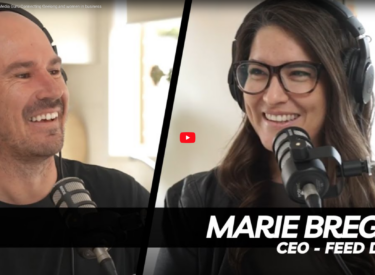Search Engine Optimisation, or SEO as we like to call it, is crucial for getting your website in front of potential customers. But there’s a fine art to successfully SEO-ing your website! We’ve put together our top 6 tips to successfully SEO your website that you can implement right now.
Firstly, what is SEO and how does it work for you?
SEO is the practice of increasing the quantity and quality of traffic to your website through organic search engine results (via google and the likes). A higher ranking when someone searches a term in your industry increases your brand’s visibility online. You’ve probably heard of the saying “customer’s don’t look past page one” and this is what it’s referring to. Increasing the number of search results you appear on page one for gives you more opportunities to convert searches into purchases or bookings.
How do I SEO my website?
SEO-ing your site involves deciding on the words or phrases you want your website to appear in searches for and ensuring you’re front and centre for each of them. We call these keywords, and you can rank anywhere from 1 to 1,000 keywords depending on how broad your range of offerings are.
Once you’ve determined your keywords, you then have to integrate them into your website copy. Mentioning your keywords on your website means that when Google is searching the internet for sites that match a users search terms, they can see that your website matches their needs and suggest you as a potential match. The better you match their search terms, and the greater the user experience your site offers, the higher you’ll appear in search results.
Google makes its decisions on what will be an ideal search result in less than one second, so ensuring your website is user friendly and SEO’d well is crucial for competing for rankings. That’s where our tips come in!
Avoid keyword stuffing
Once upon a time, the best way to increase SEO was to include your keywords as many times as humanly possible on every page. It didn’t matter if your sentences didn’t make sense, the more times your keyword appeared the higher in search results your website was. This is not the case anymore, with Google wanting to ensure every user has a great experience, sites are now penalised for keyword stuffing.
Nowadays, it’s believed that an ideal keyword density is around 1-2%. This means the target keyword appears about one to two times per 100 words. At this rate, the keyword appears enough times to show search engines what the page is about without engaging in keyword stuffing.
Use a variety of high-quality content and media
The aim of the game is to keep people on your website for as long as possible, and engaging content is the way to do it. Plus it gives them a reason to keep coming back for more. In other words, the longer visitors stay on your site and the more traffic you attract can help to give an overall positive impression of your website’s popularity. And that’s great for SEO.
Site speed matters!
Google can recognise the speed of your website and use this as a factor to determine your ranking. Remember, Google’s priority is to improve user experience. Data from Strange Loop shows that a mere one-second delay in page load time can yield a whopping 7% loss in conversions, so test your site speed often and remove any plugins that you aren’t using and could be slowing you down.
Optimise for mobile
Google takes websites that are optimised for viewing on mobile devices very seriously when it comes to search rankings. After all, when it’s all about the user experience, websites that are hard to read and difficult to navigate on mobile won’t cut it for the majority of people who rely on their smartphones to access the internet.
You can check if your site is optimised for mobile, and determine any changes you need to action, with tools such as responsinator which shows you how your web page renders in the most popular screen shapes and sizes.
Use links
Using external links doesn’t work against you by taking your traffic off your site, it’ll actually work for you by creating a great user experience. Of course, you should only link out to content pages that offer tremendous value to your viewers. It’s a good SEO practice.
And remember to check these links periodically, if the site you link to stops working (is broken) it signifies to search engines that you aren’t reviewing your content regularly. Plus it makes for a bad user experience.
Make your URL structure readable
If your users can’t read or understand your URL, then search engines may be confused as well. Avoid URL’s with a random number and letter combination and opt for a URL that summarises your topic. This makes your pages easy to understand, for both users and search engines.
These 6 tips can be implemented on your site today and will drastically improve your search result ranking! If you need a little more guidance on how to navigate SEO and improve your website, get in touch with us today to discuss our SEO packages and see how Feed can help you!



